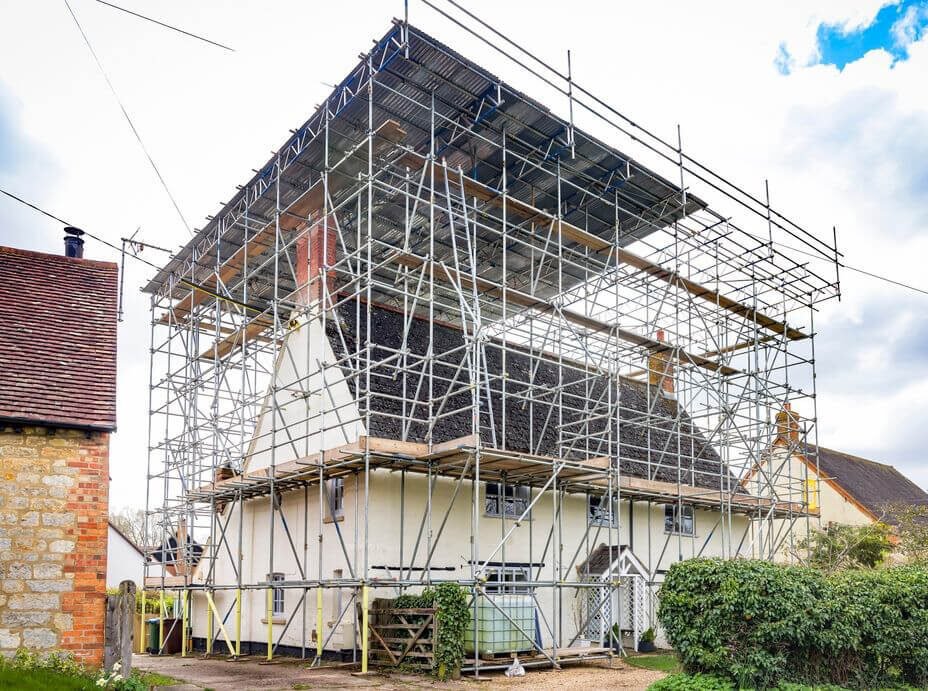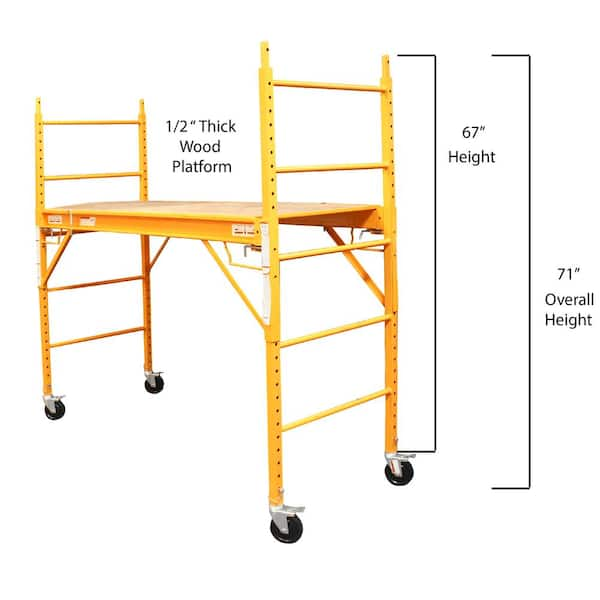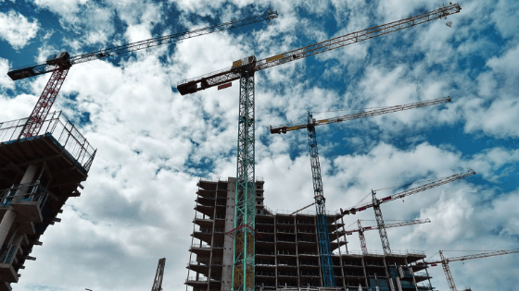Residential Scaffolding Solutions for Safe and Efficient Home Improvements
Residential Scaffolding Solutions for Safe and Efficient Home Improvements
Blog Article
Exploring the Various Types of Scaffolding Utilized in Building And Construction Tasks
The building and construction sector counts heavily on various types of scaffolding to meet certain job demands, each offering unique advantages and applications. Conventional frame scaffolding provides a tough structure for general tasks, while put on hold scaffolding is crucial for job on high-rise structures. Various other choices, such as system and rolling scaffolding, cater to performance and flexibility, respectively. The cantilever variant verifies indispensable in urban settings where area is constricted. Comprehending the nuances of these scaffolding kinds is vital for maximizing security and efficiency on building sites, triggering a closer assessment of their unique features and applications.

Traditional Frame Scaffolding
Traditional frame scaffolding is among the most widely utilized methods in the construction market due to its robustness and versatility. This system contains vertical and straight frameworks that are set up to produce a stable system for products and workers. The main parts consist of vertical posts, horizontal journals, and diagonal braces, which with each other supply a solid structure that can sustain considerable loads.
One of the key benefits of traditional framework scaffolding is its adaptability to numerous building and construction tasks, varying from residential buildings to large commercial frameworks. The modular design enables very easy assembly and disassembly, making it reliable for both lasting and short-term jobs. In addition, the system can be customized in elevation and size, accommodating various structure designs and site conditions.
Safety and security is critical in scaffolding applications, and typical frame systems are furnished with guardrails and toe boards to stop falls and make certain worker protection. Regular inspections and adherence to security guidelines are critical in maintaining the integrity of the scaffold (Scaffolding). In general, standard structure scaffolding continues to be a fundamental choice in the construction market, supplying a reliable platform for labor and improving total project effectiveness

Suspended Scaffolding
Suspended scaffolding offers an unique solution for building projects that need accessibility to raised surfaces, especially in situations where traditional structure scaffolding might be impractical. This sort of scaffolding is typically put on hold from the roofing system or top levels of a framework, using a system of ropes, platforms, and pulleys to develop a working space that can be adapted to different heights.
Among the main advantages of put on hold scaffolding is its versatility. It can be quickly repositioned or reduced to fit modifications in building needs, making it perfect for tasks such as home window installation, frontage work, and upkeep on skyscrapers. Furthermore, the minimal impact of put on hold scaffolding allows for much better usage of ground space in urban settings, where space is usually restricted.
Security is a critical factor to consider in the usage of put on hold scaffolding. On the whole, put on hold scaffolding supplies a efficient and reliable service for accessing hard-to-reach locations in numerous building scenarios, improving both performance and safety and security on website.
System Scaffolding
System scaffolding, typically pertained to as a contemporary service in the scaffolding industry, includes pre-engineered elements that can be rapidly set up and adjusted for different construction projects. Scaffolding. This kind of scaffolding is defined by its modular design, which enables for versatility and efficiency on job websites, accommodating different heights and structural demands
Generally made from high-strength steel or aluminum, system scaffolding uses enhanced toughness and security. The components consist of vertical blog posts, straight journals, and angled braces, which adjoin safely, ensuring a durable structure. The layout usually incorporates standard installations, simplifying assembly and disassembly processes, thereby decreasing labor time and expenses.

Rolling Scaffolding
Moving scaffolding is a versatile option to conventional fixed scaffolding, made for mobility and ease of use on construction websites. This type of scaffolding consists of a system supported by structures with wheels, allowing workers to quickly move it as needed. The mobility feature significantly improves performance, as it decreases downtime connected with setting up and taking apart repaired scaffolding.
Usually constructed from light-weight materials such as aluminum or steel, rolling scaffolding uses a strong yet portable solution for jobs requiring constant repositioning - Scaffolding. It is specifically useful in tasks such as paint, drywall installation, and electric job, where accessibility to different heights and places is required
Safety and security is vital in rolling scaffolding layout, with functions such as locking wheels to avoid unintentional scaffolding rules activity when being used, and guardrails to protect employees from falls. Additionally, numerous versions are flexible in elevation, accommodating numerous project needs.
Cantilever Scaffolding

The style of cantilever scaffolding usually includes using brackets or arms anchored to a structure or structure, allowing the system to expand outward safely. Security is extremely important; therefore, these scaffolds have to be engineered to hold up against numerous tons and ecological conditions. Normal evaluation and maintenance are important to make sure structural honesty and worker safety.
Cantilever scaffolding is preferred for its convenience and reliable use of space, making it a popular selection in city atmospheres where area restraints prevail. Moreover, it assists in easier accessibility to high elevations, eventually adding to the total efficiency of construction projects. Just like all scaffolding kinds, appropriate training and adherence to safety requirements are critical for employees making use of cantilever scaffolding.
Final Thought
Conventional frame scaffolding offers stability, while put on hold scaffolding uses adaptability for elevated jobs. System scaffolding facilitates quick assembly, and rolling scaffolding enhances movement for varying work settings.
Standard structure scaffolding supplies a sturdy structure for general tasks, while put on hold scaffolding is crucial for work on skyscraper structures.Moving scaffolding is a flexible option to typical set scaffolding, made for movement and ease of usage on building and construction websites. As with all scaffolding kinds, proper training and adherence to safety criteria are critical for employees utilizing cantilever scaffolding.
Typical framework scaffolding read the full info here gives security, while suspended scaffolding uses convenience for elevated tasks. System scaffolding helps with quick assembly, and rolling scaffolding improves wheelchair for differing job environments.
Report this page